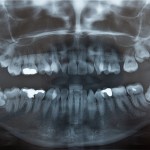
In this blog, Francesca Kingston summaries a clinical trial from the US Care Project, which investigated whether depression can be reduced during pregnancy and before birth using a brief, safe intervention.
[read the full story...]
In this blog, Francesca Kingston summaries a clinical trial from the US Care Project, which investigated whether depression can be reduced during pregnancy and before birth using a brief, safe intervention.
[read the full story...]
This review of the effectiveness and safety of acupuncture in treating temporomandibular joint disorders (TMD) included 32 RCTs. The findings suggest potential benefits for acupuncture compared with both active and inactive controls. However none of the studies were at low risk of bias and the certainty of the evidence was rated as very low to low. Consequently the findings should be interpreted cautiously.
[read the full story...]
Georgie Parker summarises a recent study which outlines the results of three trials exploring the effectiveness of a peer-led dissonance-based programme for preventing the onset of eating disorders.
[read the full story...]
Hannah Wallace summarises a systematic review exploring people’s experiences of psychotherapy for self-harming behaviours, which highlights the importance of therapeutic rapport and the clinical competencies that support developing a good relationship between clinicians and service users.
[read the full story...]
Daisy Long reviews E.W Gadsby, G Wistow & J Billings article A critical systems evaluation of the introduction of a ‘discharge to assess’ service in Kent
[read the full story...]
Ross Nedoma summarises the biggest review yet on exercise for depression, which strengthens the case for making exercise a key component in our fight against depression.
[read the full story...]
In her debut blog, Amy Morgan summarises a qualitative study evaluating the government-funded Every Mind Matters campaign in the UK.
[read the full story...]
This review of antibiotic prophylactic treatments in relation to the risk of developing dry socket (DS) and site-specific infection (SSI) after lower third molar extraction included 16 RCTs. Antibiotic did reduce the risk of DS and SSI in health patients but the number needed to treat (NNT) was high so the use should be considered only after a careful assessment of an individual patient’s risk.
[read the full story...]
In her debut blog, Ella Tuominen considers the Tavistock Adult Depression Study (TADS), which evaluated the cost-effectiveness of long-term psychoanalytic psychotherapy for treatment resistant depression compared to treatment as usual.
[read the full story...]
In her debut blog, Beth Hindhaugh summarises a systematic review and meta-analysis of 173 studies examining the untreated course of anxiety disorders, which finds that for some people, anxiety disorders can improve without treatment.
[read the full story...]